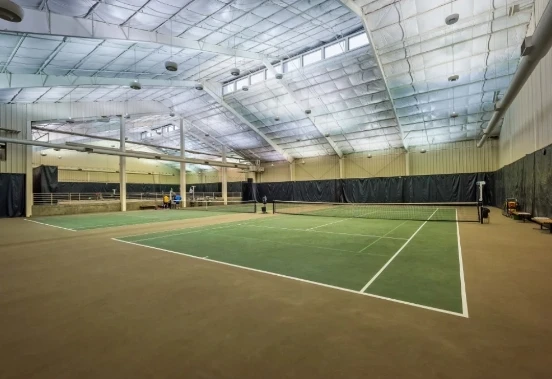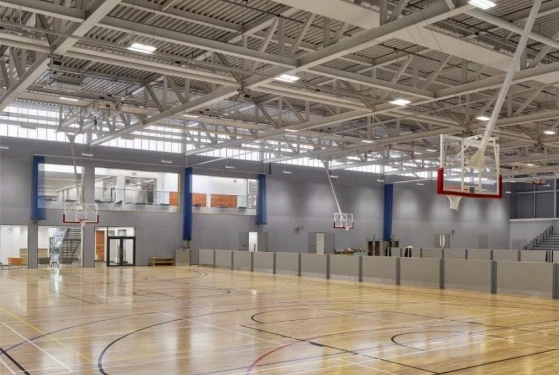- Afrikaans
- Albanian
- Amharic
- Arabic
- Armenian
- Azerbaijani
- Basque
- Belarusian
- Bengali
- Bosnian
- Bulgarian
- Catalan
- Cebuano
- Corsican
- Croatian
- Czech
- Danish
- Dutch
- English
- Esperanto
- Estonian
- Finnish
- French
- Frisian
- Galician
- Georgian
- German
- Greek
- Gujarati
- Haitian Creole
- hausa
- hawaiian
- Hebrew
- Hindi
- Miao
- Hungarian
- Icelandic
- igbo
- Indonesian
- irish
- Italian
- Japanese
- Javanese
- Kannada
- kazakh
- Khmer
- Rwandese
- Korean
- Kurdish
- Kyrgyz
- Lao
- Latin
- Latvian
- Lithuanian
- Luxembourgish
- Macedonian
- Malgashi
- Malay
- Malayalam
- Maltese
- Maori
- Marathi
- Mongolian
- Myanmar
- Nepali
- Norwegian
- Norwegian
- Occitan
- Pashto
- Persian
- Polish
- Portuguese
- Punjabi
- Romanian
- Russian
- Samoan
- Scottish Gaelic
- Serbian
- Sesotho
- Shona
- Sindhi
- Sinhala
- Slovak
- Slovenian
- Somali
- Spanish
- Sundanese
- Swahili
- Swedish
- Tagalog
- Tajik
- Tamil
- Tatar
- Telugu
- Thai
- Turkish
- Turkmen
- Ukrainian
- Urdu
- Uighur
- Uzbek
- Vietnamese
- Welsh
- Bantu
- Yiddish
- Yoruba
- Zulu
Jul . 31, 2025 06:00 Back to list
In the fast-evolving landscape of industrial infrastructure, insulated workshop buildings rise as the cornerstone of energy efficiency, sustainability, and rapid adaptability. Whether you are seeking modular workshop buildings for flexible layout needs, or robust outdoor workshop buildings for challenging environments, advanced insulation technology is reshaping how industries approach workspace design and construction.
This comprehensive review delves into current trends, technical specifications, application prospects, manufacturing processes, and authoritative data around insulated workshop buildings, offering unique insights into their tangible advantages and bottom-line impact.
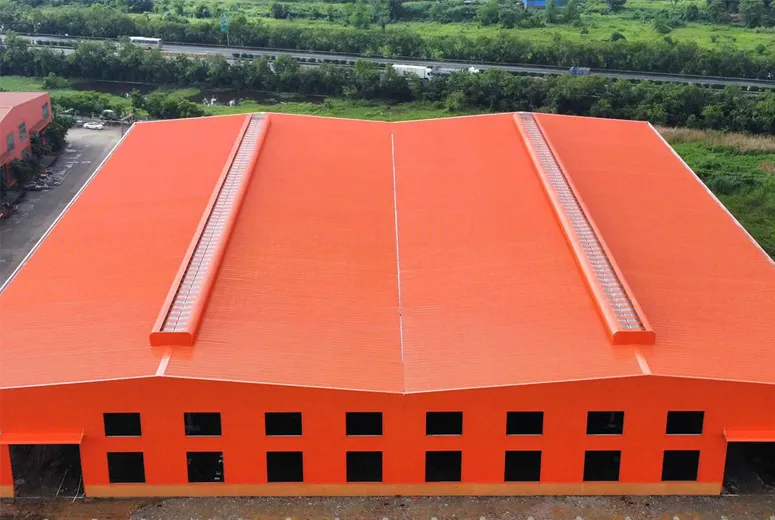
Industry Trends in Insulated Workshop Buildings
- By 2026, the global demand for insulated workshop buildings is expected to reach $58.3 Billion, with a CAGR of 4.9% (Source: MarketsandMarkets).
- Key growth drivers include energy regulations, customization flexibility, and the expansion of logistics/mini-storage industries.
- Adoption of modular workshop buildings has accelerated, reducing construction times by 20-35% versus traditional onsite methods.
- Advancements in high-performance insulation panels, such as PIR, polyurethane, and composite sandwich systems, meet or exceed ISO/EN/ANSI thermal isolation norms.
Leading OEMs are integrating digital design tools (BIM, CFD simulation) and smart monitoring to ensure not only superior insulation but also workforce safety and operational continuity.
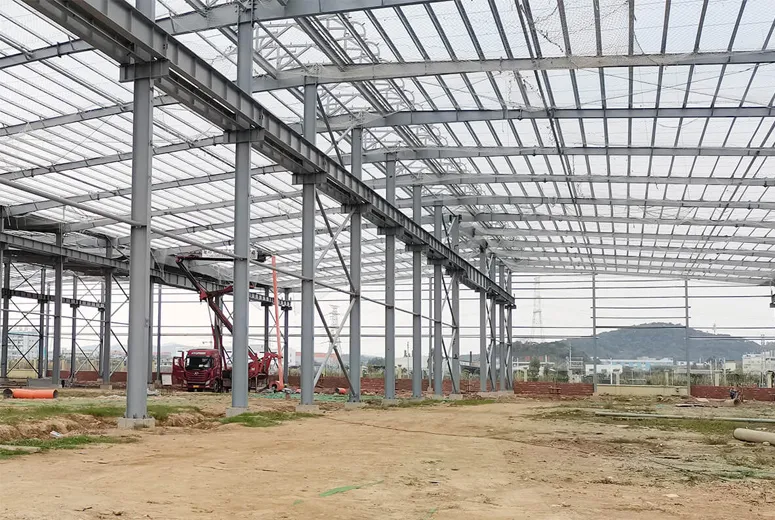
Technical Parameters of Insulated Workshop Buildings
| Parameter | Specification | Industry Standard |
|---|---|---|
| Thermal Conductivity (W/m·K) | 0.019 - 0.027 | EN 13165 (PU), ASTM C518 |
| Wall/Roof Panel Thickness (mm) | 50, 75, 100, 150 | Customizable; ISO 5598 |
| Fire Resistance | Class A - up to 2 hrs | EN 13501-1 |
| Span Capacity | Up to 30m (column-free) | ANSI MBMA 2020 |
| Wind Load Resistance | Up to 3.0 kPa | ASCE 7 |
| Panel Core Material | PIR, PU, EPS, Rockwool | ISO 10456 |
| Surface Coating | Galvanized/PPGI/aluminum | ISO 12944, ASTM A653 |
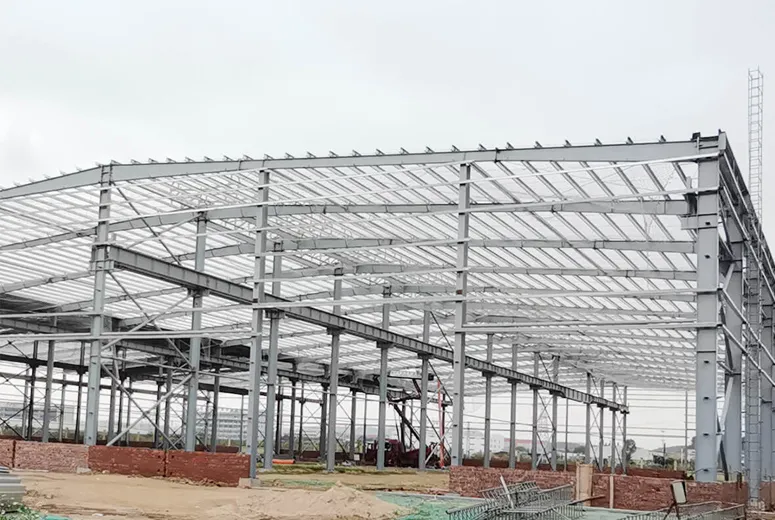
Manufacturing Process of Insulated Workshop Buildings
Key Advantages: Insulated panels produced with CNC machining and advanced foaming show 10-18% higher dimensional accuracy and up to 25-year tested lifespan even in corrosive or humid environments. Certified under ISO 9001, EN 1090, and ANSI MBMA standards, structures meet global compliance for fire, climate, and seismic safety.
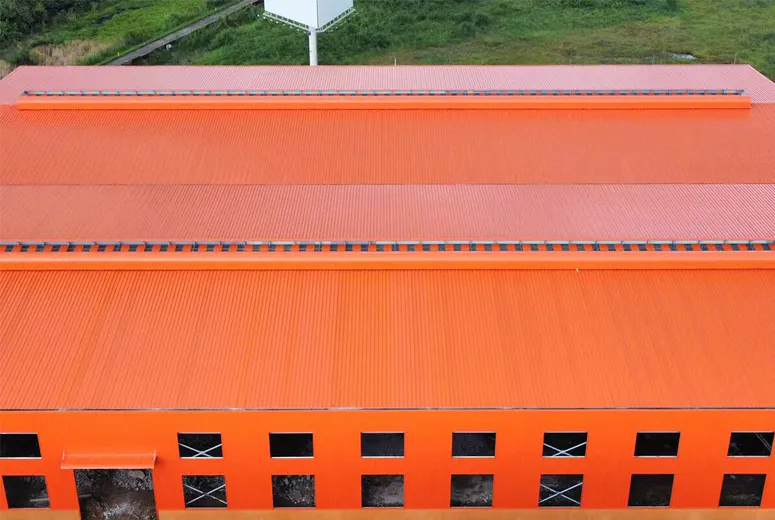
Product Specification Overview: Types & Applications
| Type | Main Material | Panel Thickness (mm) | Certified Standard | Usable Life (yrs) | Recommended Use Cases |
|---|---|---|---|---|---|
| Commercial Workshop | Galvanized steel + PU/PIR core | 50-100 | ISO 9001, EN 1090 | 20+ | Warehousing, Showroom, Retail |
| Industrial Manufacturing | PPGI/Alum. + PIR/Rockwool | 75-150 | ANSI MBMA, EN 13501 | 25+ | Plants, Assembly, Fabrication |
| Medical Workshop | Stainless steel, Rockwool panel | 75-120 | FDA, ISO 14644 | 15-20 | Laboratory, Clean Room, Clinics |
| Mini Storage | Alum.+ EPS/PU insulated | 50-100 | NFPA 5000, ISO 14001 | 20+ | Mini storage, Self-storage park |
| Modular/Outdoor | Steel frame, Polyurethane | 100–150 | ISO 12944, EN 13165 | 18-25 | Construction Site, Military, Mining |
The high-performance insulation and structural integrity of these buildings are engineered to meet or surpass global standards—delivering exceptional energy savings (up to 40%), condensation control, and rapid onsite assembly.
- Industrial workshop buildings offer top scores in fire-resistance and load capacity.
- Medical buildings excel at particulate control and meet the strictest cleanroom/sterilization needs.
- Modular and outdoor buildings set the benchmark for corrosion resistance and speed of installation in remote or harsh-weather scenarios.
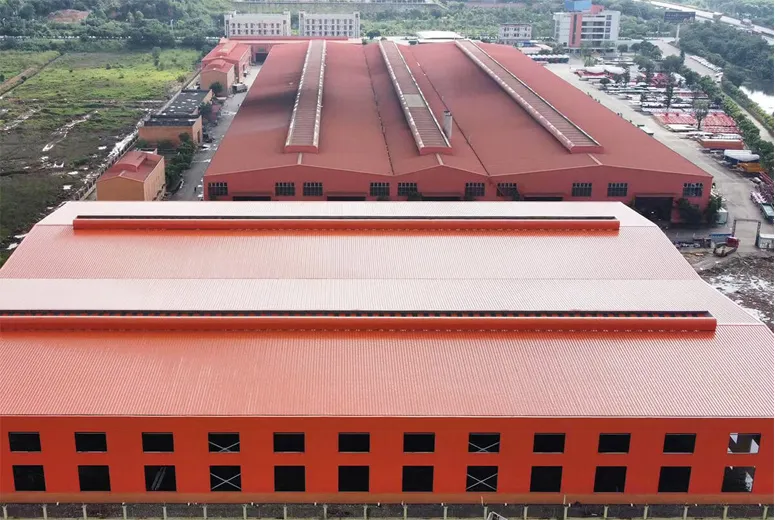
Application Scenarios for Insulated & Modular Workshop Buildings
Insulated workshop buildings deliver exceptional benefits across multiple sectors:
- Petrochemical & Oil/Gas Facilities – Withstand corrosive vapors/chemicals, maintain low-operating temperature loss, critical for hazardous zone workshops.
- Metallurgy/Foundry Workshops – Superior thermal barriers reduce heat island effect, improve worker safety, and extend machinery lifespan.
- Water Treatment & Plumbing Facilities – Moisture-resistant sandwich panels ensure process reliability.
- Medical, Bio-pharma, R&D Labs – Integrated cleanroom-grade finishes, anti-microbial coatings, conforming with FDA and ISO 14644 norms.
- Self Storage Facilities – Secure insulation & humidity control, reduce energy cost up to 42%.
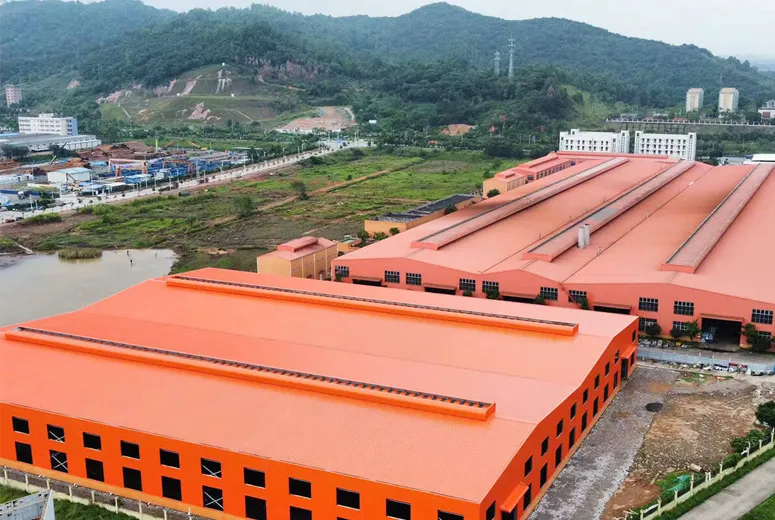
Key Manufacturer Comparison
| Supplier | Certifications | Technology Strength | Typical Delivery Time | Service Regions |
|---|---|---|---|---|
| Hongjishunda | ISO 9001, EN 1090, ANSI MBMA | Custom CNC, Smart Modularization | 25–45 working days | Global |
| Kingspan | ISO 14001, FM, EN 13501 | PUR/PIR High Insulation, Digital Twin | 35–60 days | EMEA, Americas |
| Metl-Span | FM Approved, LEED, MBMA | High R-Value Panels | 28–55 days | US, Canada |
| BlueScope | ISO, ANSI, AS/NZS | Structural Steel, Rapid Build | 30–60 days | APAC |
Bespoke Insulated Workshop Buildings: Customization Workflows
- Requirement Assessment: Detailed survey (geography, industry, insulation/fire/size loads).
- Design & Engineering: CAD/BIM digital layout, 3D simulation, load & climate modelling.
- Material Optimization: Best-matched insulation (PU, PIR, Rockwool), surface treatment, coatings for project-specific risks.
- Manufacturing & Testing: CNC, robotic welding, panel press lines; each module tested to EN 1090/ISO 9001/ANSI standards and NDT inspection.
- Logistics & Installation: Kit-of-parts delivery, fast on-site modular assembly, commissioning.
- After-Sales Service: 5-10 years warranty, maintenance, and 24/7 technical support, remote/cloud quality tracking (for authorized clients).
Application Cases & Customer Feedback
- Global Electronics OEM: "The rapid deployment and superior energy management of these insulated workshop buildings cut our energy bill by 30% year-over-year. We passed both NFPA and European EN fire code audits effortlessly."
- Medical Equipment Exporter: "Hongjishunda’s modular workshop delivered ISO 14644-compliant cleanroom environments, crucial for EU regulatory approval. We've received zero contamination incidents in 18 months of operation."
- Manufacturing Park in the Middle East: "Our outdoor workshop buildings maintain interior temp stability despite 44°C ambient heat and abrasive sandstorm exposure. Local labor assembled the modules in under 10 days."
Delivery Lead Time, Warranty & Customer Support
- Lead Time: Standard delivery window is 25–45 working days after contract confirmation and engineering sign-off. Expedited production is available for urgent deployments.
- Warranty: 5–10 years on panel core, anti-corrosion and structural integrity, with extended warranties negotiable for long-term clients.
- Customer Service: 24/7 technical hotline, free installation training, remote troubleshooting, and on-site engineering support on-request.
- Certifications: All modules shipped with complete documentation packs, test certificates, and third-party compliance reports (ISO/EN/ANSI/FM etc.).
-
The Rise of Prefabricated Metal Structures in Modern Industry
NewsJul.28,2025
-
The Landscape of Prefabricated Metal Building Solutions
NewsJul.28,2025
-
Analyzing Costs and Pricing Dynamics in Prefabricated Steel and Metal Buildings
NewsJul.28,2025
-
Advance Industrial Infrastructure with Prefabricated Steel Solutions
NewsJul.28,2025
-
Advancing Industrial Infrastructure with Prefabricated Metal Warehousing Solutions
NewsJul.28,2025
-
Advancing Industrial and Commercial Spaces with Prefabricated Steel Solutions
NewsJul.28,2025
Products categories
Our Latest News
We have a professional design team and an excellent production and construction team.










